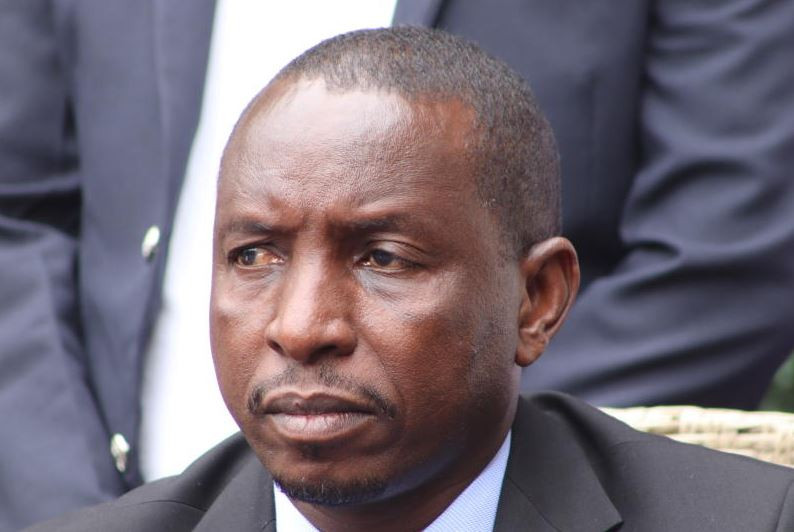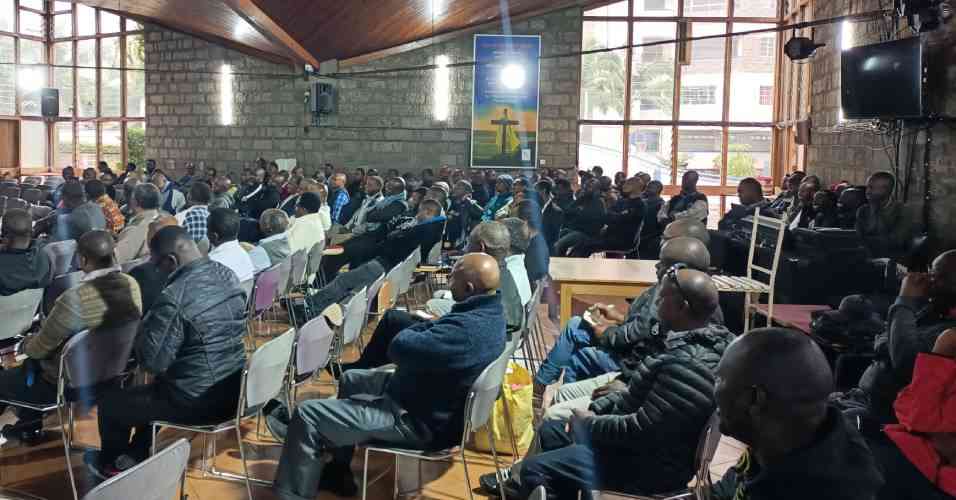Workers’ trade unions drawn from both national and county governments, together with civil society organisations (CSOs), have demanded a halt to ongoing and future privatisation plans in the energy, water and waste management sectors.
Instead, they want the two levels of government, development partners and private sector actors to immediately cease all privatisation efforts and engage with them in “good faith to build people-centred public services that uphold dignity, equity and sustainability.”
Speaking on Friday when they addressed the media in Nairobi, the bodies said the exercise has “consistently led to exclusion, unaffordable tariffs, deteriorating service quality and erosion of labour rights.”
“Women, informal workers and low-income communities bear the disproportionate brunt of the privatisation failures through increased cost of living, reduced access and greater unpaid care burdens.”
The unions included Kenya County Government Workers Union (KCGWU), Union of Kenya Civil Servants (UKCS), Kenya Union of Commercial Food and Allied Workers and Kenya Electrical Trade and Allied Workers Union (KETAWU).
The CSOs were Forum for Good Governance and Human Rights, Kariobangi Social Justice Centre and Nakuru County Civil Society Forum.
They highlighted six issues they want addressed, including halting privatisation and reinforcing a public ownership model instead of public-private partnerships (PPPs), guaranteeing universal access and equity in sector services, and protecting workers and upholding labour rights.
Others were the advancement of gender justice in public services, ensuring transparency and democratic participation, and promoting climate resilience and sustainability.
“We want immediate suspension of all ongoing and proposed privatisation initiatives in the water, energy and waste sectors, including public-private partnerships (PPPs), concessions and management contracts, and a commitment to a moratorium on any future privatisation attempts,” said the trade unions and CSOs in a joint statement.
The joint statement was read by Kevin Owango, Chief Administrative Officer of the County Government Workers Union Kenya, and Kolil Kosgey, Deputy Secretary General of KETAWU.
They added: “Invest significantly in strengthening public institutions and infrastructure, initiate a process of re-municipalisation where essential services previously privatised or managed under PPPs are brought back under direct democratic public control and management, with a clear roadmap for transition and compensation.”
They further called for prioritisation of service expansion to marginalised areas and informal settlements, dedicating a specific percentage of public utility budgets to rapidly close the infrastructure gap affecting urban, rural and underserved communities.
The unions and CSOs addressed the media during a workshop convened by Public Service International (PSI).
The demands come after a High Court in Nairobi halted the government from privatising Kenya Pipeline Company (KPC).
In the water sector, President William Ruto, in December last year, assented to the Water (Amendment) Bill, 2024, which introduces provisions to facilitate Public-Private Partnerships (PPPs) in water service delivery.
Stay informed. Subscribe to our newsletter
Currently, waste management is a devolved function, but counties are free to engage the private sector in collection under the PPP model.
On guaranteeing universal access and equity, they want legislation and enforcement of the right to essential services.
This, they said, will ensure all Kenyans, regardless of income, gender, geography or housing status, have access to water, reliable and clean energy, and dignified waste management services.
They also want adoption of pro-poor and gender-responsive progressive tariff structures that eliminate service exclusion and pricing discrimination.
“This includes establishing a minimum lifeline quota of essential services, for example in water and basic electricity, provided free or at a subsidised rate for all households, particularly in low-income areas,” said Owango.
On protecting workers and upholding labour rights, they want safeguards for decent work, permanent employment and full union representation for all public utility workers.
“This includes guaranteeing fair wages, comprehensive benefits and safe working environments, aligning all practices with International Labour Organisation (ILO) standards,” said Kosgey.
He added: “Prevent and reverse outsourcing, casualisation and the use of precarious contracts that undermine labour protection, degrade service quality and weaken collective bargaining power within the essential services sectors.”
They also want the government to ensure that no worker loses their job or suffers a reduction in pay or benefits as a result of any restructuring, re-municipalisation or public sector strengthening initiatives.
On advancing gender justice in public services, they want the government to mandate and fund gender-responsive and socially inclusive budgeting and impact assessments for all public utility projects.
This, they said, will explicitly recognise and reduce the unpaid care burden on women and girls caused by inaccessible, privatised or failing services, such as time spent fetching water or dealing with waste.
“Enforce a minimum of 40 percent representation of women in all utility governance, planning, procurement and oversight bodies, and ensure that all public service delivery mechanisms are sensitive to the specific needs of women, including safety and accessibility,” said Kosgey.
He added: “Develop targeted training and affirmative action programmes to increase the recruitment and retention of women in technical and leadership roles within the water, energy and waste management sectors.”
Under transparency and democratic participation, they want establishment of legally mandated, inclusive platforms for co-creation and monitoring.
This, they said, will ensure equal participation of CSOs, trade unions, community leaders and affected user groups in the development, implementation and oversight of public utility policies and investments at national and county levels.
They also want implementation of a radical transparency policy and a guarantee of the independence and funding of regulatory bodies.
On climate resilience, they want the government to commit to an environmentally sustainable service model, and reject and ban “greenwashing” and extractive practices.


















